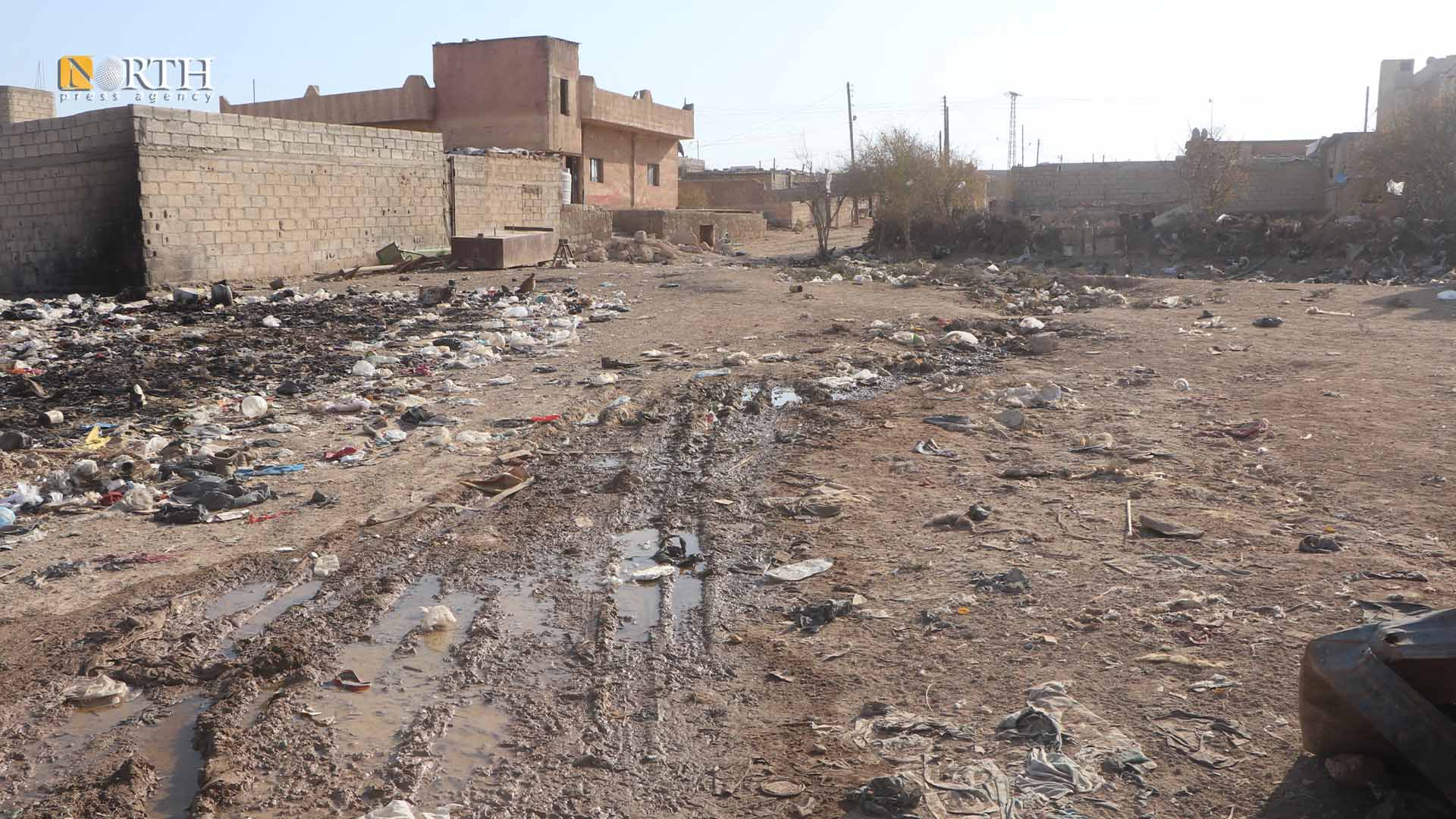HASAKAH, Syria (North Press) – Residents of some neighborhoods on the outskirts of Hasakah city, northeastern Syria, complained their areas lack basic infrastructure; no sewage system, no paved roads and scarcity of drinking water during the time of pumping.
Families in these neighborhoods are concerned dirty water and swamps full of insects and flies to cause diseases specially with the spread of coronavirus and difficulty to adhere to sanitation rules.
Moving between roads is also too difficult during winter because they are muddy.
Nashwa Gharbiyah, Aziziyah, Ghazal, Tala’e, Khashman, Mesheirfa, Omran, Dolab al-Aweis and Mejarja’ are the most neighborhoods that urgently need service projects. People here dig soak pits in front of their houses or use visible pits (which are open to the air) to get rid of waste water.
The visible pits within neighborhoods are insecure. Many incidents of children and cattle to have fallen into them were reported as well as car accidents.
Abdul-aziz Suleiman, 41, is a citizen from Khashman neighborhood, said he was forced to dig a soak pit in front of his house like many other people. As soon as the hole fills, he digs another one.
The suffering of Suleiman and other residents continue all year round; in the summer there is dust and in the winter there is mud.
The residents criticize Hasakah-based People Municipality for the delay in implementing service projects like paving the roads and building sewage systems.
Insufficient budget
“The Municipality did many research to build sewage system in the above mentioned neighborhoods, but the project costs too much,” Fahad Ibrahim, co-chair of technical directorate in the People Municipality said.
“The Municipality lacks the suitable financial budget to implement the projects, so they are done on several stages,” he added.
Ibrahim told North Press that the service projects in those areas are scheduled within 2022 year plan to be implemented in case financial provisions are approved.
The deficit budget in 2021 affected the implementation of many projects. But the first stage of sewage system in Khashman neighborhood was carried out with 900 meters long.
In turn, Amina Osi, an official of the Executive Council of the Autonomous Administration of North and East Syria (AANES) said earlier that the investment budget for 2022 is $80 million, while it reached $ 40 million this year.
Repeated problems
Suleiman al-Kammah, 31, is from Khashsman and said some people of his area offered financial help to the Municipality to bring sewer pipes but their offer was refused by the Municipality claiming that building sewage system in one street without the surrounding area is not acceptable.
Al-Kammah pointed out that the main sewer line is only 15 meters from their street and 60 meters from the houses situated in the north part of the neighborhood.
Soak pits nearby houses smell bad and cause skin diseases to the children who keep playing in the streets.
Drivers abstain from entering the muddy streets fearful they get stuck; if one person gets ill or is dead in winter, the family is obliged to carry him/her until they get to the main road to be transferred somewhere else by car.
Al-Kammah pointed with his finger to the dirty water running near where is standing at the time of interviewing and he said “15 years have passed and we still suffer. We applied many times to the Syrian government before the war and we also applied to the Autonomous Administration, but we have not get any reply so far”.

